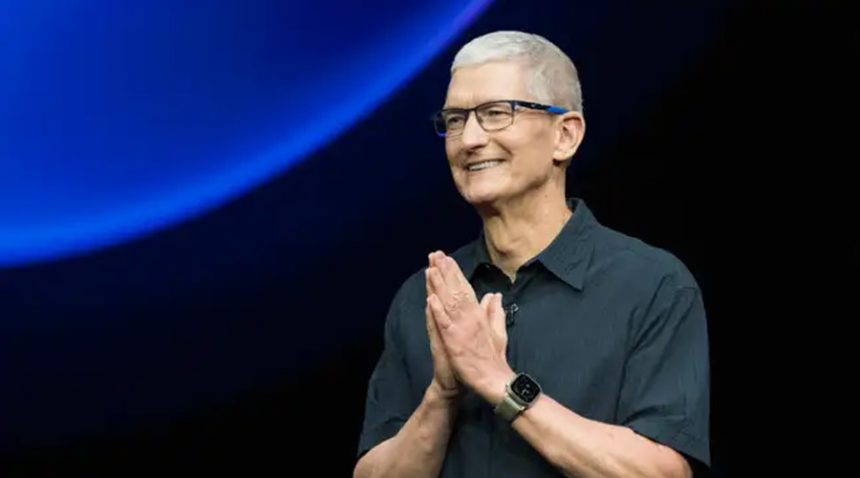Discover how Apple Intelligence is redefining AI with a privacy-first approach
Apple’s entry into the artificial intelligence (AI) landscape has garnered significant attention with the launch of Apple Intelligence, a suite of AI features integrated across its latest product lineup, including the iPhone 16 series, MacBooks, and iPads. As competitors like Google, Samsung, and Microsoft advance in the AI space, questions about Apple’s strategy and competitive stance have emerged. Tim Cook, Apple’s CEO, addressed these concerns in a recent interview with Wired, outlining the company’s vision for AI, its partnership with OpenAI, and the role of AI in health-related advancements.
Apple Intelligence: A Privacy-First Approach
Tim Cook emphasized that Apple Intelligence was designed with a focus on privacy and personalization. He explained that Apple’s approach to innovation remains consistent with its core values, aiming to deliver features that enrich user experiences without compromising data security.
Cook likened Apple Intelligence to multitouch technology, which transformed smartphones and tablets, suggesting that the AI suite would similarly revolutionize user interaction. Unlike competitors that have explored subscription-based models for AI services, Apple views its AI features as integral to its ecosystem. Cook confirmed that Apple has not considered monetizing Apple Intelligence as a standalone offering.
Privacy remains central to Apple’s AI strategy. Cook stated that any potential integration with third-party services would involve strict privacy safeguards, ensuring no compromise between “great privacy and great intelligence.” This stance reflects Apple’s long-standing commitment to user data security, a differentiating factor in an increasingly interconnected tech landscape.
Collaboration with OpenAI
Cook discussed Apple’s partnership with OpenAI, the Microsoft-backed AI powerhouse. This collaboration addresses customer demand for access to expansive world knowledge, which Apple Intelligence currently does not offer. Through this partnership, Apple has integrated OpenAI’s services in a way that allows users to maintain control over their data.
Cook clarified that while Apple has no immediate plans to invest in OpenAI, the company remains open to exploring possibilities in the future. When asked about developing an in-house large language model (LLM), Cook avoided speculation but did not dismiss the idea entirely, leaving room for potential advancements in this area.
AI Advancements in Health
AI’s role in healthcare emerged as a key focus during the interview. Cook highlighted the potential of leveraging health and biometric data collected through Apple’s ecosystem to revolutionize medical diagnostics. AI-powered features could enable real-time identification of medical conditions, offering users critical insights and preventative measures.
Although no specific announcements were made, Cook confirmed ongoing research and development in this domain. The integration of AI in healthcare aligns with Apple’s broader strategy of using technology to improve lives, particularly through products like the Apple Watch, which already provides advanced health-tracking capabilities.
Apple’s dedication to health-related AI demonstrates its commitment to long-term innovation. As Cook noted, the company invests significant resources into projects that often take years to materialize, reflecting Apple’s focus on quality and impact.
The Future of Vision Pro
Cook also discussed the Vision Pro, Apple’s mixed-reality headset, positioning it as an “early adopter product” for users seeking cutting-edge technology. He acknowledged that the current form factor might evolve, hinting at the potential development of lighter, more compact devices in the future.
While Cook did not confirm whether Apple plans to release a smart-glass-like product, his comments suggest that Apple is exploring new avenues in augmented and virtual reality. The Vision Pro’s integration with AI could further enhance its capabilities, creating immersive experiences tailored to individual preferences and needs.
Challenges and Criticism
Apple’s AI strategy has faced criticism for being perceived as reactive rather than proactive. Competitors such as Google, Microsoft, and Samsung have been integrating AI-powered features for over a year, leading to claims that Apple is playing catch-up. However, Cook countered these claims by asserting that Apple prioritizes innovation that aligns with its principles, even if it means entering the market later.
The emphasis on privacy and the deliberate pace of development are core aspects of Apple’s approach. While this strategy may appear slower, it ensures that products meet the high standards associated with Apple’s brand.
What This Means for Tech’s Future
Apple’s AI strategy signals several key trends for the broader tech industry:
Privacy-Centric AI Development:
Apple’s emphasis on privacy sets a benchmark for other tech companies, especially as concerns about data misuse and security breaches grow.
AI in Healthcare:
The integration of AI in health-related features highlights the transformative potential of combining technology with biometric data. This trend could pave the way for new diagnostic tools and personalized healthcare solutions.
Collaborative Innovation:
Apple’s partnership with OpenAI demonstrates the value of collaboration in driving innovation. By leveraging external expertise, companies can deliver more comprehensive solutions to their users.
Ecosystem Integration:
Apple’s approach to embedding AI features seamlessly into its ecosystem underscores the importance of user-centric design. This strategy enhances the functionality of Apple’s products while maintaining a consistent user experience.
Focus on Long-Term Impact:
Apple’s investment in projects with extended development timelines reflects a commitment to meaningful innovation. This approach contrasts with the rapid-release cycles of competitors, prioritizing quality over speed.
Tim Cook’s defense of Apple’s AI strategy provides a clear vision of the company’s priorities and future direction. Apple Intelligence, with its privacy-first approach, distinguishes itself in a competitive market dominated by rapid advancements. The partnership with OpenAI and the exploration of AI in healthcare further demonstrate Apple’s commitment to using technology for the betterment of its users.
While critics may view Apple’s entry into AI as delayed, the company’s deliberate and thoughtful approach ensures that its offerings align with its values and meet user expectations. As Apple continues to innovate, its AI strategy is likely to shape not only the company’s future but also the broader trajectory of technology. The emphasis on privacy, collaboration, and meaningful impact positions Apple as a leader in defining the role of AI in improving lives and advancing the tech industry.






